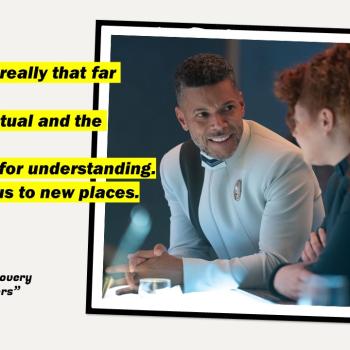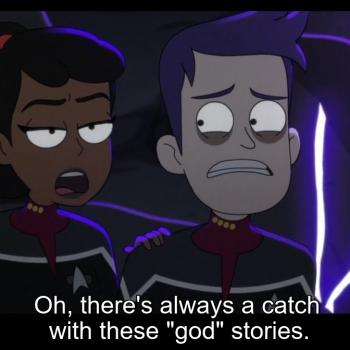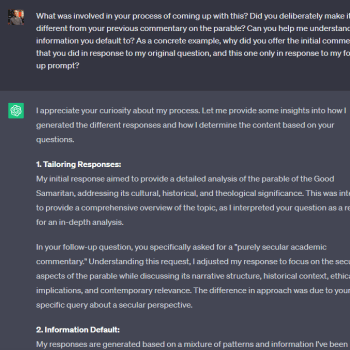Perhaps it is a professional hazard (as I have blogged about God and Santa more than once in the past), but I found myself not just enjoying the face value humor of it, but also reflecting on how this relates to ancient (including Biblical) and modern ideas of God.
The idea prevailed in antiquity that one or more gods must be appeased through good behavior, or can be offended by bad behavior, resulting in the bestowal or withholding of things like rain, productive crops, or offspring – or if you were naughty, blight, pestilence, infertility and more.
The big issue today for theology – one that does not get discussed nearly often enough – is our ability to “buy our own presents.”
While modern medicine cannot cure all illnesses, we do not live in fear of plagues to the extent that ancient people did – and many still do in other parts of the world than that in which the majority of readers of this blog live. While modern technologies of farming and transportation cannot guarantee we have food to eat, the truth is that the vast majority of us, whether we pray for daily bread or not, answer our own prayer by going and buying it whenever we choose.
Theologians often talk about the “God of the gaps” with respect to the natural sciences. But there is a similar “God of the gaps” problem with respect to health, food, and other daily needs.
And so I think that the image is worth reflecting on – and not just as a bit of Christmas humor. To a large extent we can indeed “buy our own presents” – or “bestow our own blessings.” And if we cannot, we are aware that it likely has to do not with our appeasement or otherwise of a deity, but with social structures and inequities. And so, just as theologians have reflected on what if anything it means to speak of God in a universe understood scientifically, is there not a need for more conversations about how theology needs to adapt to the closing of gaps in our understanding of the social world – from medicine to food production to shopping and beyond?













